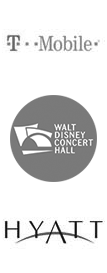Hospitality & Casinos

Reliable cellular service is essential in the hospitality industry for an assortment of reasons. First and foremost, there is a noticeable improvement in guest communication. Dependable cellular networks make it possible for visitors to stay in touch with friends, family, or business partners, guaranteeing that they can easily maintain both personal and professional relationships while visiting.
Access to information is another crucial benefit. Good cellular coverage enables guests to easily find information about local attractions, restaurants, and transportation options, enhancing their travel experience and convenience.
In terms of convenience, strong cellular networks support guests’ ability to make reservations, check-in, or request services through their mobile devices. This capability streamlines the guest experience, allowing for smoother and more efficient interactions with hotel services.
Marketing efforts also benefit from reliable cellular coverage. Hotels can reach guests through mobile advertisements and promotions, encouraging them to take advantage of various offerings and improving the hotel’s marketing reach.
Emergency services are another critical aspect supported by robust cellular coverage. In the event of an emergency, guests need to be able to promptly contact emergency responders, ensuring their safety and well-being.
Additionally, many modern hotels utilize mobile devices for check-in, door locks, and other services. Strong cellular networks ensure these systems work efficiently, allowing guests to avoid spotty Wi-Fi and the hassle of logging in, remembering passwords, and verifying accounts. This level of connectivity enhances the overall guest experience, making their stay more convenient and enjoyable.
Good cellular coverage in hospitality significantly enhances the guest experience, supports operational needs, and helps create a positive impression of the property.
Guests use their cellphones in hotels for a variety of services, including:
- Communication: Staying in touch with friends, family, or business associates.
- Information Access: Finding local attractions, restaurants, and transportation options.
- Reservations: Booking dining reservations, spa appointments, or other activities.
- Check-in/out: Checking in and out of the hotel using mobile devices.
- Room Service: Placing room service orders or requesting additional amenities.
- Entertainment: Streaming music, videos, or games.
- Payment: Making payments for hotel charges or for purchases made during their stay.
- Assistance: Contacting hotel staff for assistance or to request services.
Overall, cellphones provide guests with a convenient and efficient way to manage their hotel experience, offering hotels an opportunity to enhance the guest experience through technology.
Applications used on a cellular network in hospitality typically include:
- Voice and Data Communication: Calls, texts, and internet access.
- In-room Entertainment and Control Systems: Smart TVs, temperature control, and room service ordering.
- Staff Communication and Coordination: Walkie-talkie functionality, staff scheduling, and management.
- Guest Engagement and Services: Mobile check-in/check-out, room upgrades, and loyalty programs.
- Emergency Response: First responder communication and coordination.
- Payment Processing: Mobile payment and transactions.
- Internet of Things (IoT) Devices: Smart locks, energy management systems, etc.
Private LTE/5G networks offer several benefits and applications for the hospitality industry, including:
- High-speed Wi-Fi: Private LTE/5G networks can provide fast and reliable Wi-Fi for guests and staff, improving the overall guest experience and enabling staff to perform tasks more efficiently.
- IoT Connectivity: Private LTE/5G can support a large number of connected devices, including smart home systems, smart locks, and energy-saving devices, helping hotels operate more efficiently and offer new services to guests.
- In-room Entertainment: Private LTE/5G can support high-definition video streaming, online gaming, and other in-room entertainment, providing guests with a better experience and reducing the need for expensive hardware in each room.
- Mobile Staff Communication: Private LTE/5G can provide high-speed and reliable connectivity for mobile staff members, including front desk, housekeeping, and maintenance staff, allowing them to communicate more effectively and perform their tasks more efficiently.
- Video Conferencing: Private LTE/5G can support high-quality video conferencing, making it easier for hotels to host virtual events, training sessions, and meetings, thereby improving the overall guest experience.
- Location-based Services: Private LTE/5G can support location-based services, such as indoor navigation, to help guests find their way around the hotel, reducing the need for staff assistance and improving the overall guest experience.
These are just a few of the many potential use cases for private 5G in the hospitality industry. By providing fast and reliable connectivity, private 5G can help hotels improve their operations, offer new services, and provide a better experience for guests.
Strong cellular service is crucial in the continually shifting casino environment for a number of reasons. In order to enable guests to maintain connections with friends, family, or business contacts, effective communication is essential. While having fun at the casino, visitors can easily maintain their personal and business contacts thanks to this connectivity.
Convenience is another critical benefit of good cellular coverage. It supports guests’ ability to make reservations, check in, or request services through their mobile devices, streamlining their experience and enhancing satisfaction. This capability allows guests to manage their activities efficiently without having to leave the gaming floor.
Marketing efforts are significantly bolstered by reliable cellular networks. Casinos can reach guests through mobile advertisements and promotions, encouraging them to engage with various offerings and boosting the casino’s revenue. Mobile marketing is a powerful tool for attracting and retaining guests.
In the realm of gaming, robust cellular coverage enables guests to play mobile games or place bets through their phones. This access to mobile gaming and betting platforms provides additional entertainment options, enhancing the overall guest experience.
Emergency services are a crucial aspect supported by strong cellular networks. In the event of an emergency, guests must be able to contact emergency responders quickly. Reliable cellular coverage ensures that help is always accessible, enhancing the safety and security of all patrons.
Mobile payment options are increasingly popular in casinos. Good cellular coverage supports these payment methods, allowing guests to purchase chips, make transactions, and settle bills seamlessly. This convenience simplifies financial interactions and improves the overall guest experience.
Guests also use their cellphones to book dining reservations, spa appointments, or other activities within the casino. Reliable cellular networks facilitate these bookings, making it easy for guests to plan and enjoy their stay.
Good cellular coverage in casinos not only enhances the guest experience but also supports operational needs and provides guests with convenient access to gaming and other services.
Applications used on a cellular network in a casino typically include:
- Voice and Data Communication: Calls, texts, and internet access.
- Gaming Machines and Systems: Slot machines, table games, and sports betting systems.
- Staff Communication and Coordination: Walkie-talkie functionality, staff scheduling, and management.
- Customer Engagement and Services: Mobile check-in/check-out, rewards programs, special offers, and promotions.
- Emergency Response: First responder communication and coordination.
- Payment Processing: Mobile payment and transactions.
- Surveillance and Security Systems: CCTV, facial recognition, and access control.
- Internet of Things (IoT) Devices: Smart lighting, energy management systems, etc.
Despite its importance, cellular coverage in casinos can be hampered by several factors. The building materials used in many casinos, such as metal and concrete, can interfere with cellular signals, reducing coverage. The layout of the casino, including walls, partitions, and ceilings, can further obstruct signals, making consistent coverage challenging.
The use of electronic equipment, such as slot machines and gaming tables, can create interference that impacts cellular performance. Additionally, the high density of users in casinos can lead to wireless network congestion, reducing coverage and increasing the risk of interference. Other wireless devices operating in the same frequency spectrum can also cause spectrum interference, leading to dropped calls and reduced data speeds.
These factors can disrupt cellular service in casinos, making it difficult for guests to access reliable mobile services and impacting their overall experience and satisfaction. Addressing these challenges requires the expertise of specialized companies that can implement tailored solutions to enhance cellular coverage. By leveraging advanced technologies and industry best practices, these experts can ensure that casinos benefit from robust and reliable cellular connectivity, supporting communication, gaming, and operational efficiency.
Our Clientele
Explore some of the great companies that RSS has worked with.






















Why RSS?
The licensed wireless industry is intricate. Experience has been a part of Repeated Signal Solutions (RSS) from the company’s inception in 2004. Unlike our rivals, RSS has been active in the licensed wireless frequency market for 19 years and still represents the majority of our first clients nationally.
- 1
Financial Transparency
The RSS methodology has been demonstrated to put everyone at ease. This approach is the result of 19 years of expertise. - 2
Trust: 92%+ of Our Customers Are Recurring
Among licensed wireless services, RSS is one of the few that puts the client first. - 3
Respect and Understanding for All Stakeholders
To ensure that each party contributes for their use case, our process supports the creation of budgets for each group’s allocation of the system. - 4
Total Solution Experience
We offer end-to-end life cycles with the standard carriers SLAs starting at 10 years as part of our solutions.
Ready to Speak With Our Team?
RSS’ mission is to act on behalf of our customers and provide innovative methodologies and detailed solutions that meet their wireless coverage challenges. We strive to provide value propositions based upon ethical business approaches with a high level of transparency and communication which builds mutual trust, respect and a basis for replicable results in our products and services delivery.
Pete Bohley, President of RSS


